Help us improve the conditions of the residents in the remote mountains of Nepal.
Jericho Road’s healthcare services in Nepal started as a motorbike medical outreach program in August 2018. The need was overwhelming and we worked to construct a permanent clinic building in the mountains.
The clinic officially opened in 2022 and targets the residents of the rural villages of Hagam and Hapra, in the Sindhupalchok District, near the Nepali border with Tibet (60 miles from Mt. Everest). The closest clinic we know of is approximately a 4-5 hour walk through the mountains. Most of the ailments treated are preventable and/or treatable when there is ample access to quality healthcare.
Our focus is providing primary care with a focus on acute problems and, when possible, follow-up and management of chronic conditions. The two-story health center provides all-ages primary care, women’s healthcare, pharmacy services, lab, minor surgical and orthopedic services.
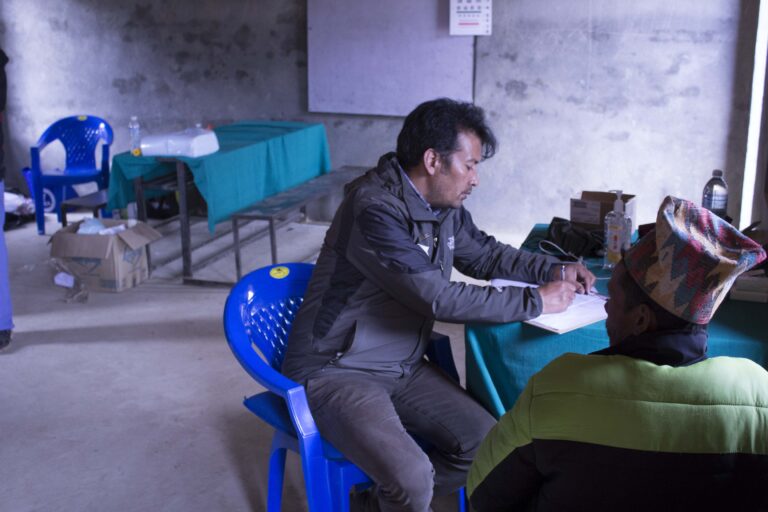
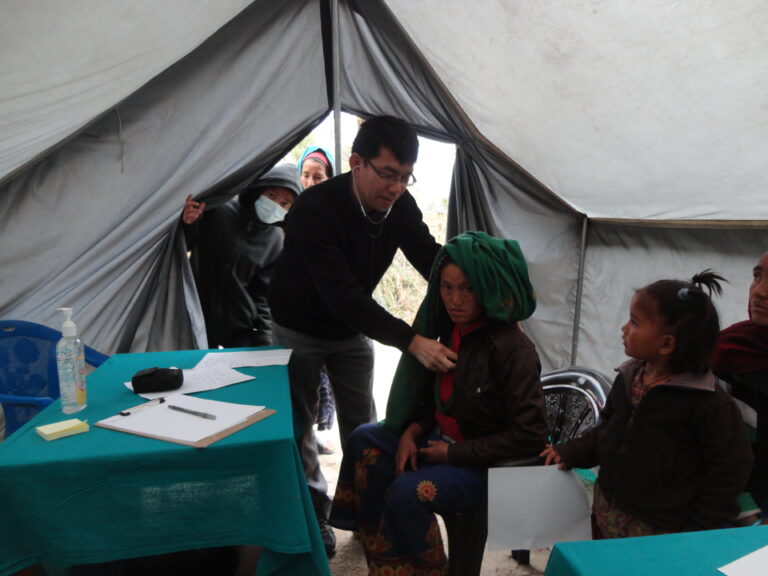
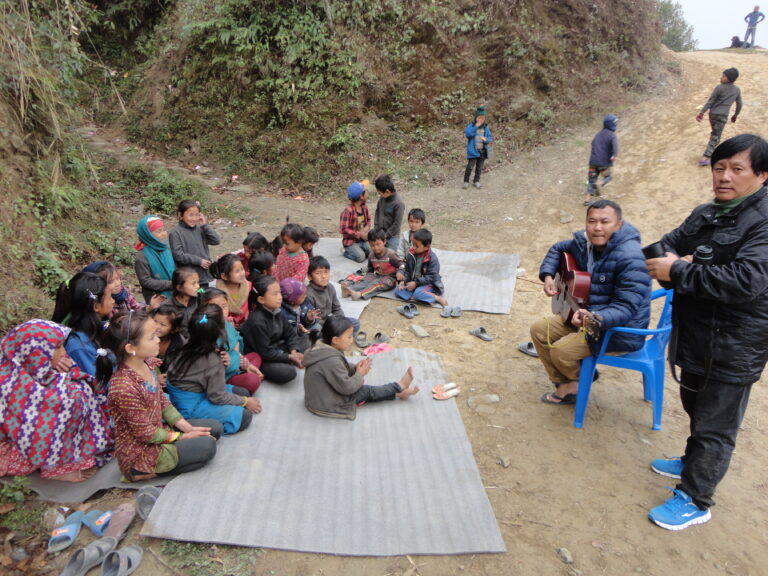
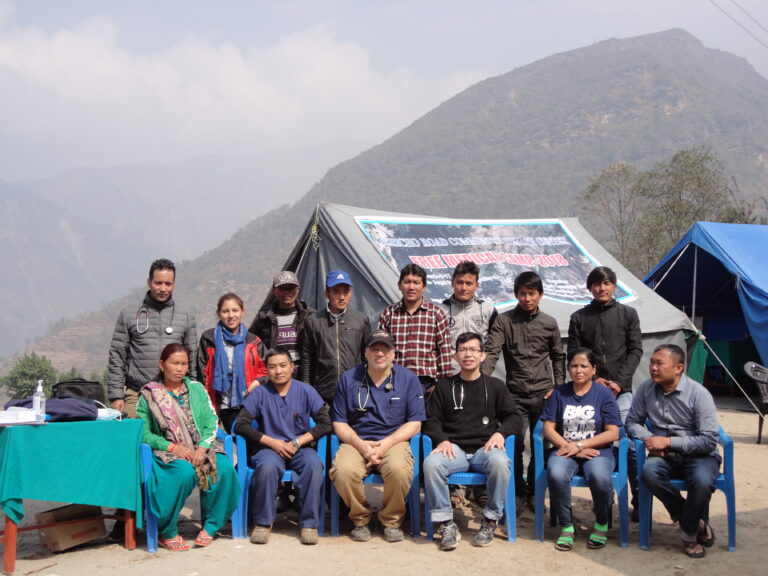
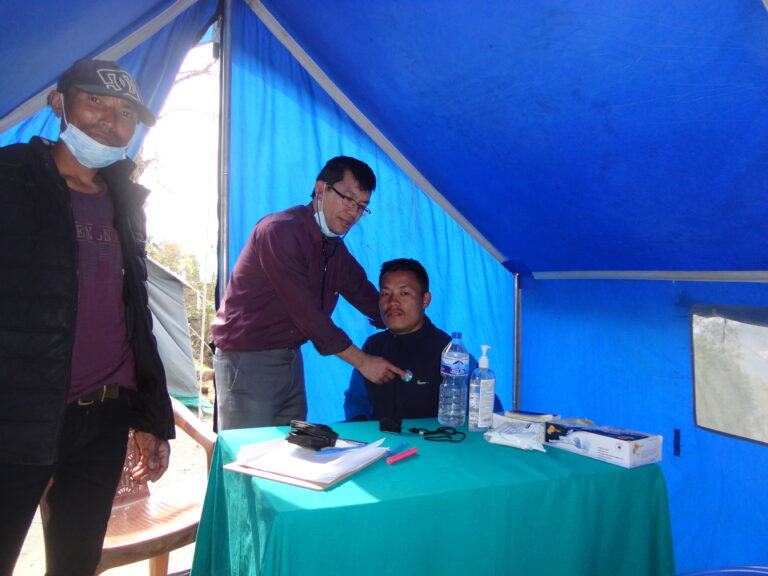
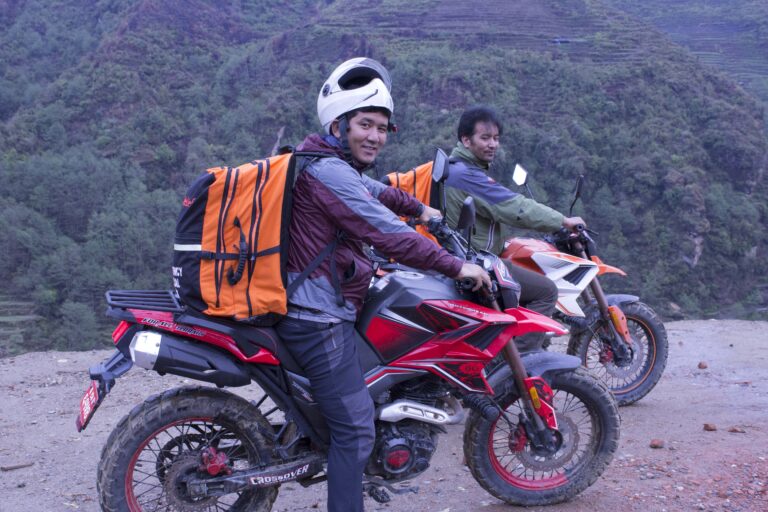
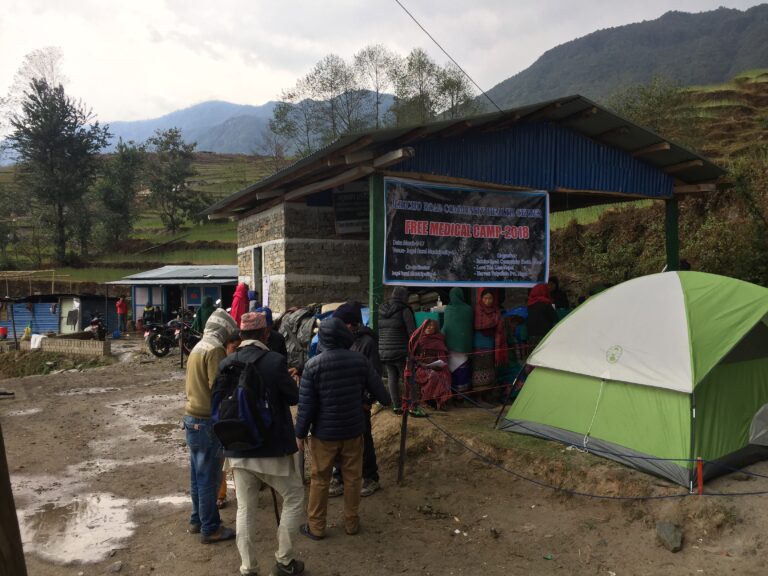
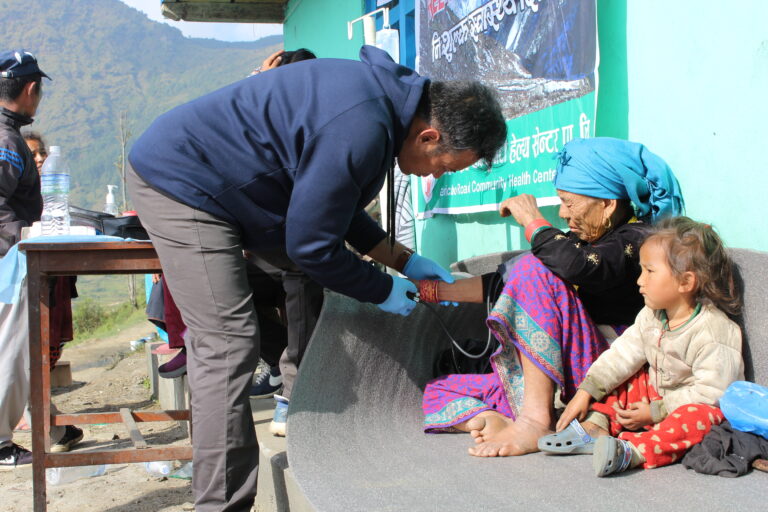
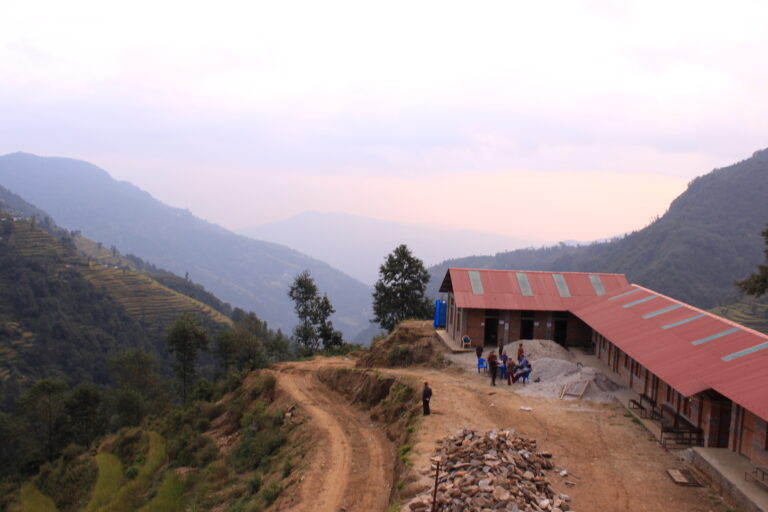
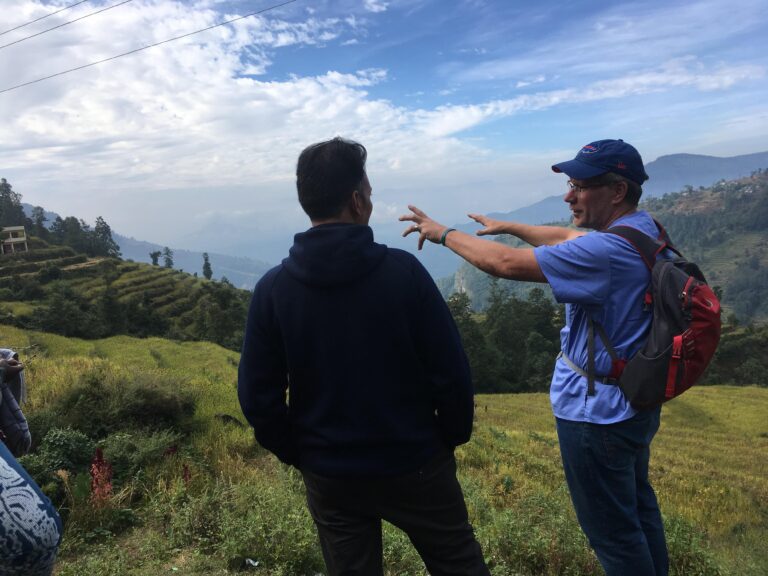

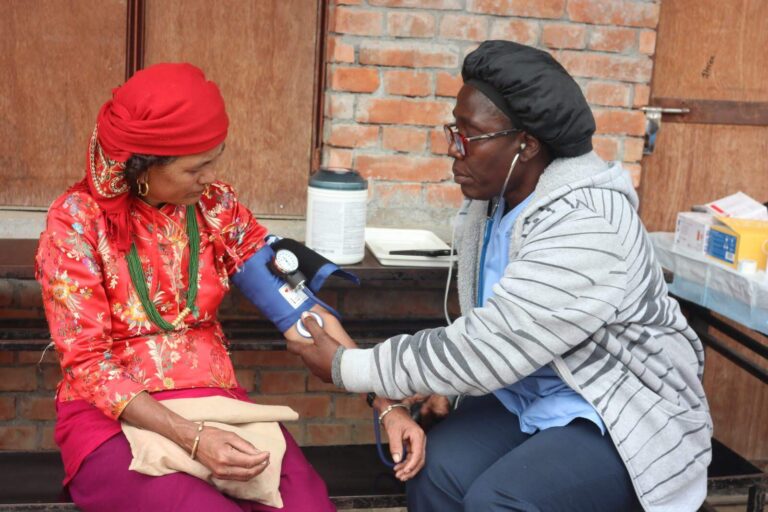
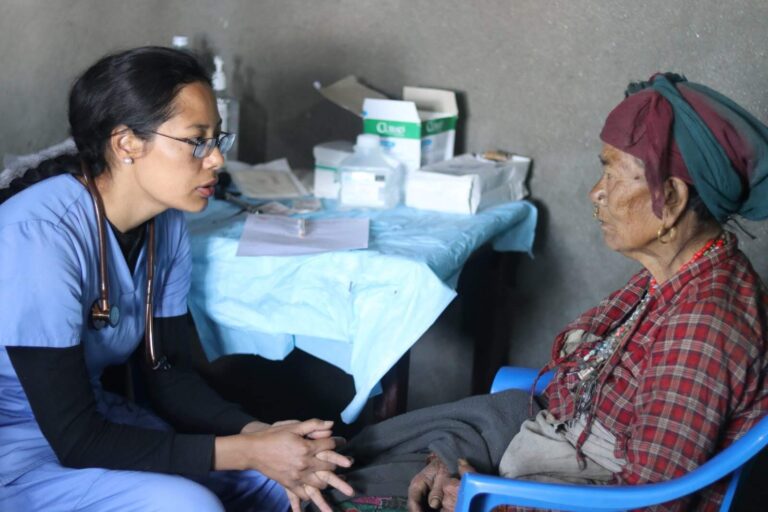
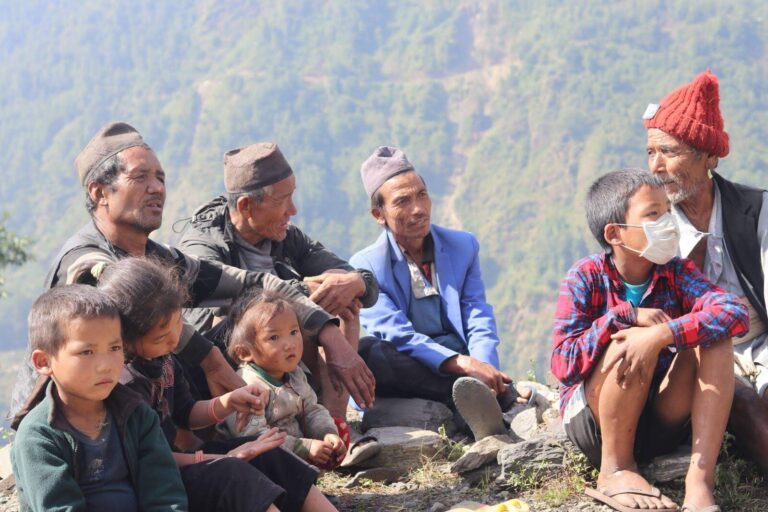


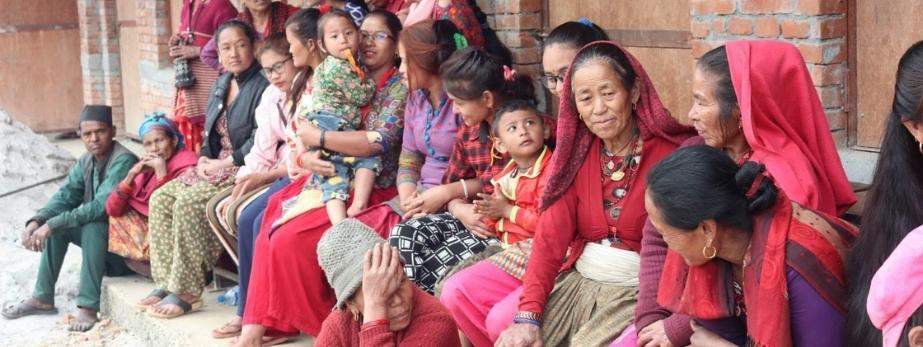
Jericho Road’s global health strategy is to bring quality medical care to severely underserved areas of the world where many of our staff and patients lived before coming to Buffalo (and where their families and neighbors still live).
In Buffalo, Jericho Road serves a large number of Nepali patients and clients and employs Nepali staff members. One of these staff members, Pastor Purna Tamang, first began advocating to bring Jericho Road to Nepal in 2013. After the terrible Gorkha earthquake in 2015, he and his wife led a humanitarian team to one of the most affected areas, which is where Jericho Road Nepal Community Health Center now operates.
Jericho Road went on two exploratory trips, one in February 2017 and one in March 2018. The first trip occurred after the Sindhupalchok District region had been devastated by the 7.8 magnitude earthquake that hit in 2015. It wreaked havoc on an already under-resourced area. During the trip, the team focused their medical relief efforts in Hagam, part of a chain of 10 settlements that are dotted over foothills and accessible only by dirt road or, in some cases, only by hiking. Over 300 villagers from Hagam and its four closest neighboring villages were able to attend the makeshift clinic and receive medical care during this first trip.
The second exploratory trip saw over 500 patients come from the surrounding area over five days. It was clear the need was there. During this trip, Jericho Road team members also connected with members of the local government, international aid organizations, local health officials, and local community members to further define community needs and explore options for bringing a Jericho Road clinic to Nepal permanently. The local government was very supportive of Jericho Road and offered the use of an existing health outpost building for future work.
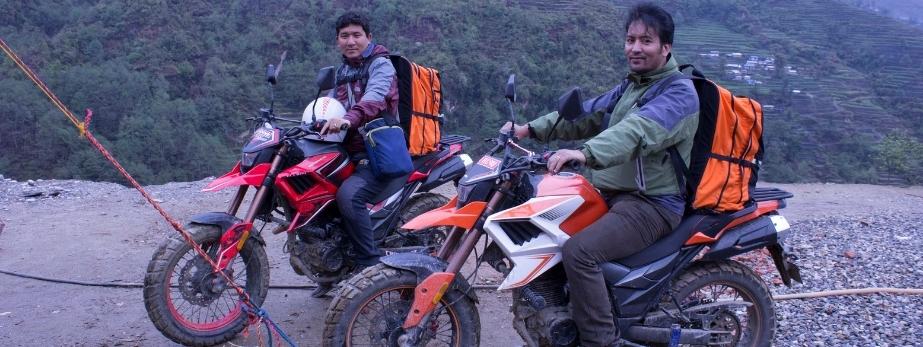
In August 2018, Jericho Road officially hired two part-time employees in Nepal, purchased two motorbikes, and launched an ongoing mobile medical clinic to the villages of Hagam, Hapra, and the surrounding areas.
Twice a month, the mobile team drove and hiked into Hagam and Hapra to provide primary care with a focus on acute problems and, when possible, follow-up and management of chronic conditions.
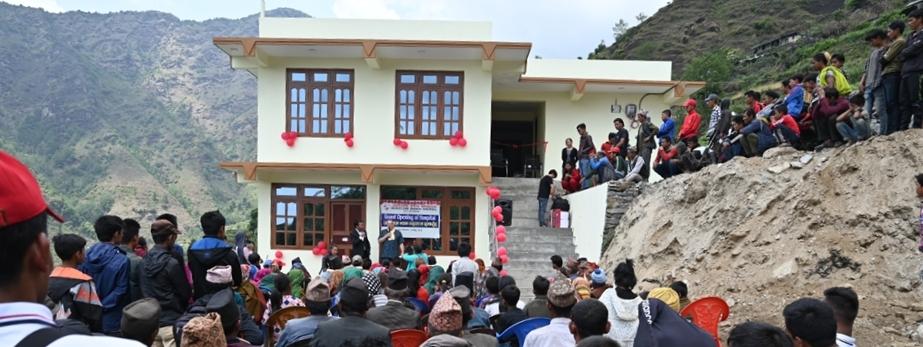
At the end of 2020, Jericho Road began building a physical health center in Hagam, in order to bring a consistent medical presence to the people of Sindhupalchok District. Throughout 2021 and the beginning of 2022, Jericho Road began hiring additional staff to support health center operations.
Jericho Road Nepal Community Health Center officially opened with a well-attended community celebration on May 1, 2022. In the days following the ceremony, the clinic was open to patients, with care being provided by visiting Jericho Road Buffalo staff (who were in Nepal for the first few weeks of operations) and permanent in-country staff.
In keeping with Jericho Road’s overall global health strategy, Jericho Road Nepal Community Health Center is permanently staffed, year-round by local, in-country employees.
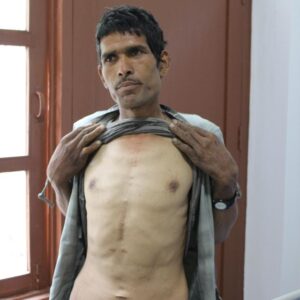
Dawa was forced to take out a $5,000 (USD) loan to pay for a heart surgery in Kathmandu. This left his family destitute, especially after they lost their home in a mudslide a couple years later. He and his family stay at a relative’s house, but the relative is threatening to kick them out if they don’t start contributing rent. His wife has epilepsy and cannot work very much. His young adult son earns $10 a day as a laborer in Kathmandu. The family doesn’t have enough money to pay rent or to build a new home and is still in significant medical debt. Dawa hasn’t been able to attend any of his follow-up cardiology appointments in Kathmandu due to barriers related to cost and transportation.